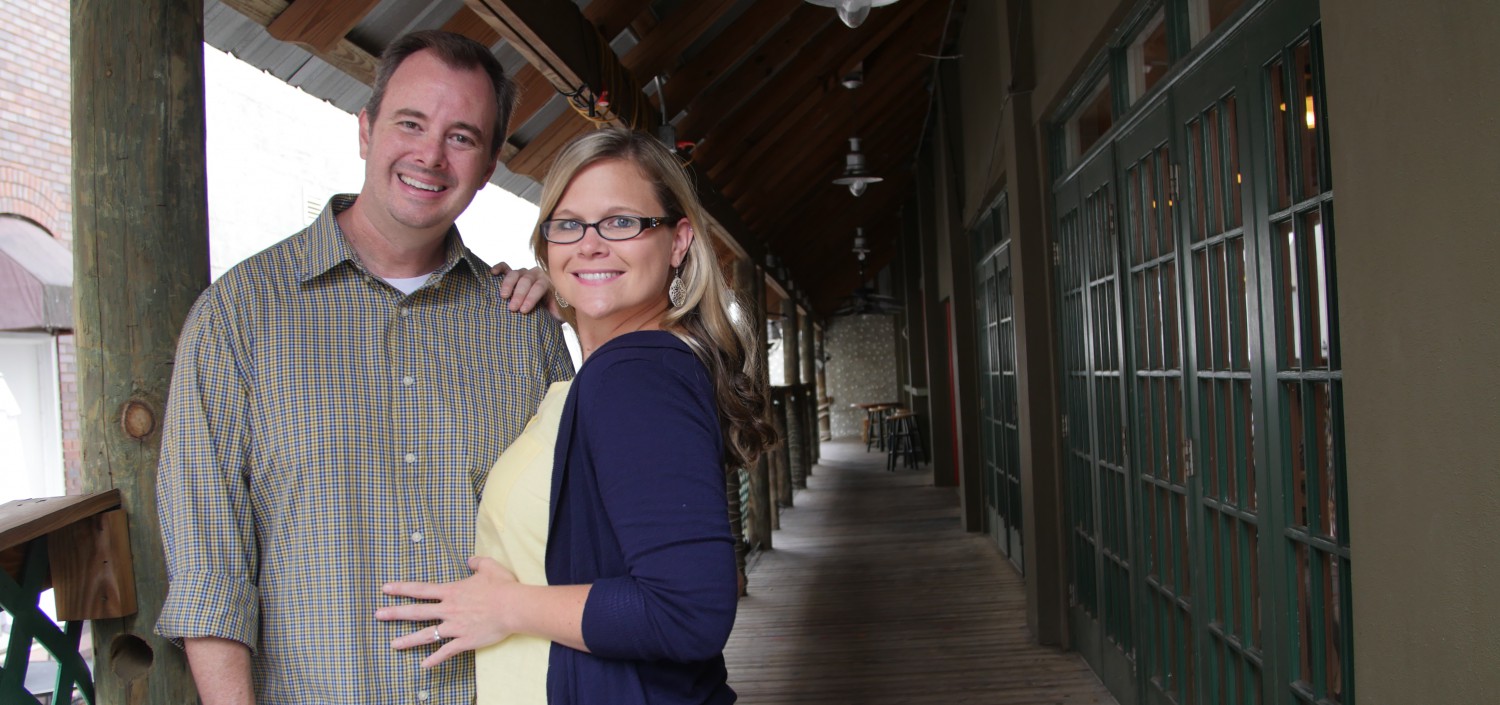On the rare occasion when I wake up at 5:30 a.m., drive to the beach, and discover that it’s flat, I get disappointed and head home. But not today.
After a surprisingly fun surf session yesterday, I carefully studied the forecast last night in hopes of scoring again this morning. Low tide was at 2:49 a.m. and first light was at 6:07. This meant that by the time I could see well enough to paddle out, it would be a little past mid-tide. Since the swell was small, it might be too deep to break, and even if it were ridable, I knew it wouldn’t last long. I could wait for a lower tide later in the day, but the wind was supposed to pick-up and turn onshore. It was a crapshoot, but I was hoping to time it just right for about an hour of fun, glassy surf.
While it was still dark, I pulled into the parking lot of my favorite surf spot. While there were little lines of swell coming in that might possibly be ridable, it didn’t look very good. As I patiently waited in hopes of some bigger set waves, I noticed what was shaping up to be a nice sunrise. I took a picture to send my wife.
One set wave came through that looked barely ridable, so I thought, “What the heck,” and decided to paddle out. Maybe I could catch a few as I watched the sun rise. I grabbed my board, did a little warm-up routine on the beach, and slowly walked into the water. As the emerging light reflected off the clouds, I was overtaken by the beauty before me. While all sunrises are beautiful, the colors in the sky this morning were especially electrifying.
I was so overwhelmed, that I spontaneously began to pray. “God, this is so beautiful. I am so grateful to be able to see and appreciate this.” I was the only person in the water and it all felt like a gift.
As I pushed off on my surfboard, skimmed across the water like a skipping rock, and began to paddle, I noticed that the water was bright pink with purple tints. And not just a small patch of water, but what seemed like the entire ocean. It was like swimming in wet, neon, oil paint as the colors swept over my hands. I kept chucking to myself saying, “God, this is so beautiful. I can’t believe how gorgeous this is!” Michelangelo himself could not have captured the beauty of this scene. Only God could create something so magical and totally immerse me in it—body, mind, and spirit.
While it’s impossible to capture the joy, wonder, and awe that I felt sitting in the ocean, this video of my daughter will give you a glimpse.
This is honestly how I felt, like a kid on a carousel having the best day of her life!
(By the way, this video helps me understand what Jesus meant when he said, ““Truly I tell you, unless you change and become like little children, you will never enter the kingdom of heaven” [Matthew 18:3].)
Just when I thought that things couldn’t get better, I took off on a small wave and noticed that a full moon had been setting behind me. I felt like I was in a National Geographic photograph, situated between two of the most beautiful scenes observable from planet Earth. Then the sea came alive. I noticed boils rising from the rock reef, rough ripples from running bait fish, dolphins popping up all over the place, and a small shark feeding close to my dangling feet. Large pelicans and tiny birds were swooping down to capture breakfast in their smooth, hard beaks. All these things came together to create a beautiful moment, a significant moment, one of the best moments of my life.
In order to give expression to the overwhelming joy I was experiencing, my heart gave rise to a song that I spontaneously began to sing, one that had been sung at my wedding . . . .
Eternal God, unchanging
Mysterious, and unknown
Your boundless love, unfailing
In grace and mercy shownBright Seraphim in endless flight
Around Your glorious throne
They raise their voices day and night
In praise to You aloneHallelujah
Fernando ortega, Our Great God
Glory be to our great God
Hallelujah
Glory be to our great God
The overwhelming beauty of God’s creation led me into a time of heartfelt worship. For about thirty minutes between first light and sunrise, it felt like God was throwing me a private party. I was immersed in joy and lavished with love. My heart was bursting with gratitude, and I could scarcely take it in.
I believe that this is true worship. The expression of praise and thanksgiving that wells up from the soul when we experience an intimate connection with the mystery of the world, an experience that infuses our life with meaning, purpose, and value. This what God wants for every living creature. This is the meaning of life abundant. This is a glimpse of deep reality, a glimpse I would have missed had I been sleeping, not paying attention, or distracted my own thoughts and agenda.
The scene that so fully captured my attention quickly began to fade. While it turned out to be a beautiful morning, I have grown accustomed to beautiful mornings and wanted to hang on to the feeling of this magic moment. But alas the sun came up, the colors faded, the tide got deeper, and the waves stopped breaking.
I had paddled around for about an hour and caught only three waves that barely picked me up. Under normal circumstances, I’d say that I got skunked. But nothing can be farther from the truth. While the surf didn’t pan-out, I received an even greater gift. Once again, I was reminded that the beauty and value of God’s creation is not only exponentially bigger than me, but it has nothing to do with whether I find it useful on any given day.
I eventually got out and drove down the road to get breakfast, still buzzing from the whole experience. Driving clumsily with coffee and bagel in hand, I opened the Spotify app and sang along to the song that rose from my soul in the water, “Our Great God.”
The next song in the cue was “Stairway to Heaven,” and the first few notes of the guitar filled my eyes with tears. It’s funny how certain songs can open portals to powerful memories. I traveled back in time to 1990, sitting on the floor with my best friend Odie at the foot of his waterbed. We had just smoked marijuana1 and were eating potato chips in his bedroom. As we watched our reflections in a long mirror leaning against the wall, we made funny faces and laughed hysterically, spitting crumbs everywhere.
While I was blessed with many good friends throughout childhood, my relationship with Odie was special. Even though we got into lots of trouble, it’s like God knew I needed this person at this specific time in my life. Some of my favorite memories are of beach trips with Odie, and not just surfing together, but the drive back and forth from Lakeland, the conversation, the laughter, the practical jokes, the music. The sense of being known, understood, and accepted.
As memory fragments flashed in my mind, I turned up the volume as loud as it would go and let Led Zeppelin transport me back so I could hang out with an old friend and receive more gifts: friendship, belonging, deep connection. These gifts came wrapped in an awareness that Odie had been dead for 26 years, the victim of a violent car crash. So, the tears welling up in my eyes were a mixture of joy and sadness. This happens from time to time, and I always think, “I’d give anything to paddle out with Odie one more time on a day when the waves are firing.”
I still miss him, but the twinge of grief opened the door to another gift. The gift of gratitude for life, for my own 48 years on this incredible planet, and for all the love and joy I’ve received from more people than I can remember. Like a movie playing in fast forward, I saw so many smiling faces and so many grace-filled moments. It’s the like the scope of my entire life was coming together. As I approached the present time, the movie slowed down and I saw the faces of people who continue to give my life meaning, value, and purpose. My wife and kids; my mom, dad, and sister; my extended family; my friends, past and present. Just as the waves swelled under my surfboard in the electric colors of the ocean this morning, my heart swelled to the tune of an old song that brought back memories far and near, so many good thoughts and feelings that it felt like my heart would explode.
There’s a feeling I get when I look to the west
And my spirit is crying for leaving In my thoughts I have seen rings of smoke through the trees
And the voices of those who stand looking . . . .
If there’s a bustle in your hedgerow, don’t be alarmed now
It’s just a spring clean for the May queen Yes, there are two paths you can go by, but in the long run There’s still time to change the road you’re on . . . .And it makes me wonder . . . .
Led ZEPPELIN, STAIRWAY TO HEAVEN
I started today hoping to surf, but from the overwhelming beauty of a seascape to the cresting emotions set in motion by an old rock song, I was given a moment that far surpasses the thrill of riding waves. I was given a moment of connection with ultimate reality. A moment of passionate and spontaneous worship. A moment filled with wonder, awe, mystery, joy, and gratitude. The gift of feeling small in an incomprehensibly large universe, but also the gift of an utterly unique and personal encounter with the ground of being. Memory, friendship, belonging, life, and love.
Today I am grateful to be alive and for all the blessings I have received throughout the course of my life, blessings I do not deserve but that come through the power of unconditional love. I am especially grateful for being given eyes to see, ears to hear, and a heart to feel the goodness of God, the beauty of creation, and the power of human creativity in the moments that brought about such a magical morning.
Footnotes:
- I’m in no way glorifying drug use here, but this is part of my story, and as is written in the AA Promises, I do not regret the past nor wish to shut the door on it.






